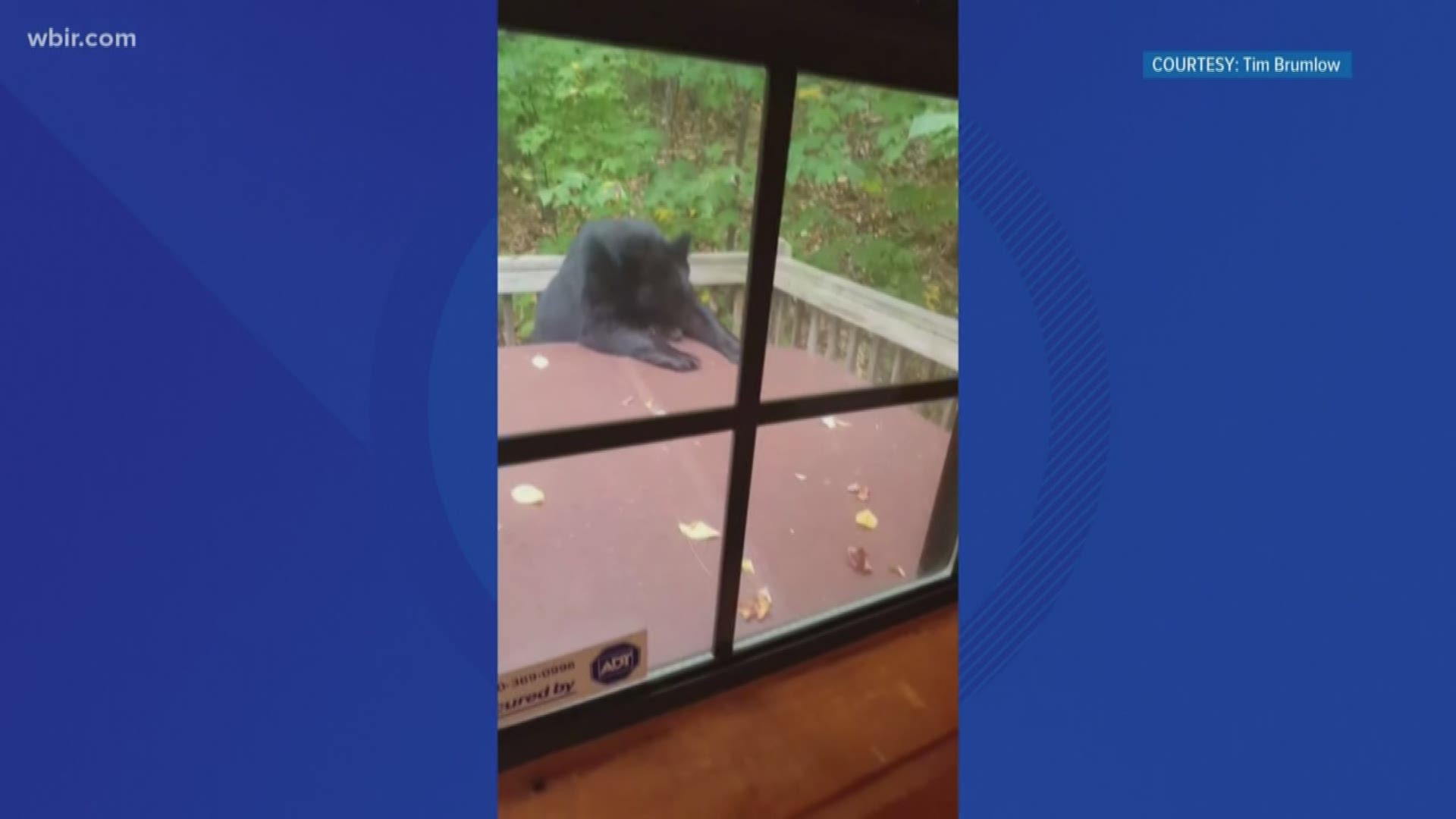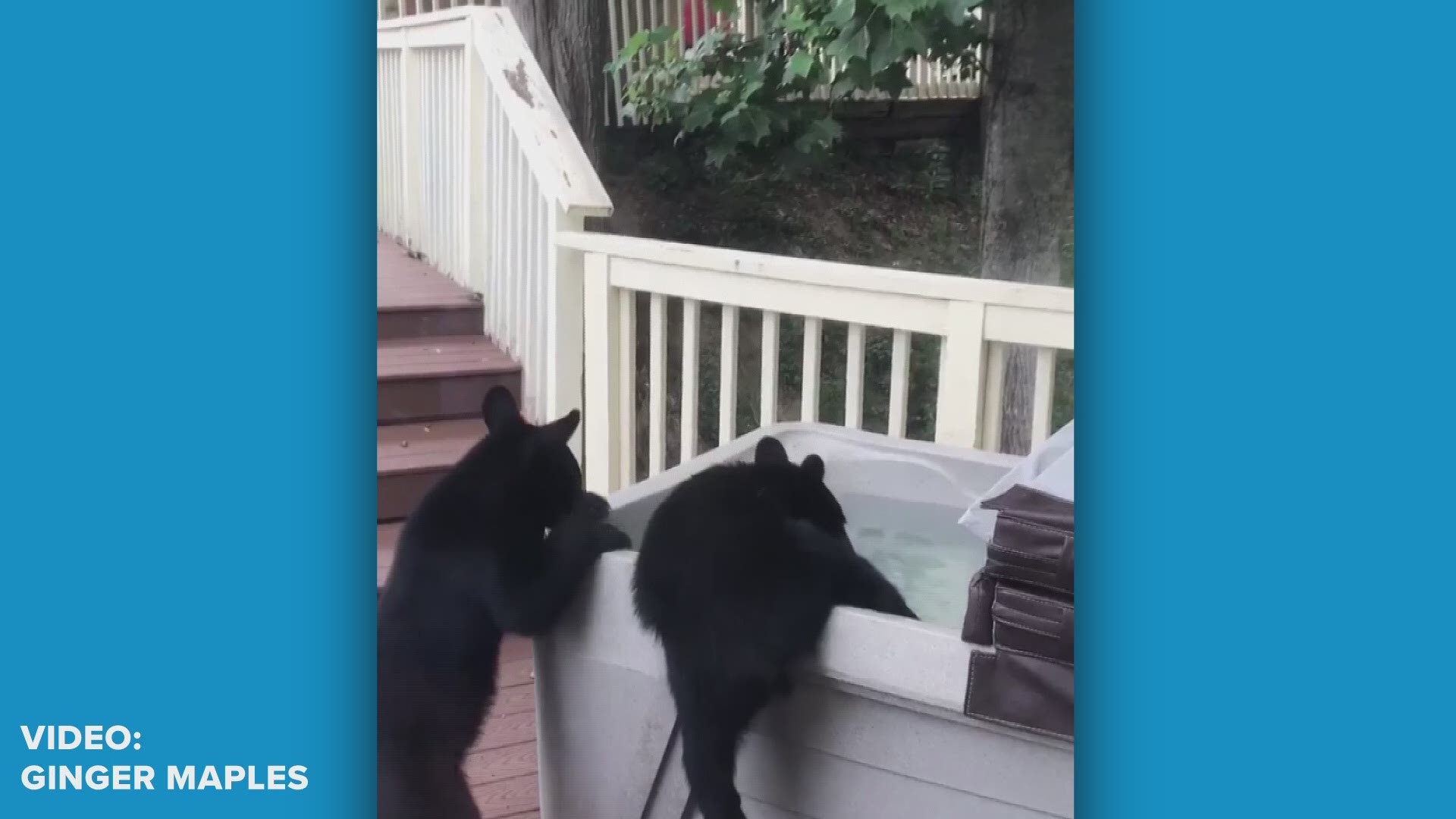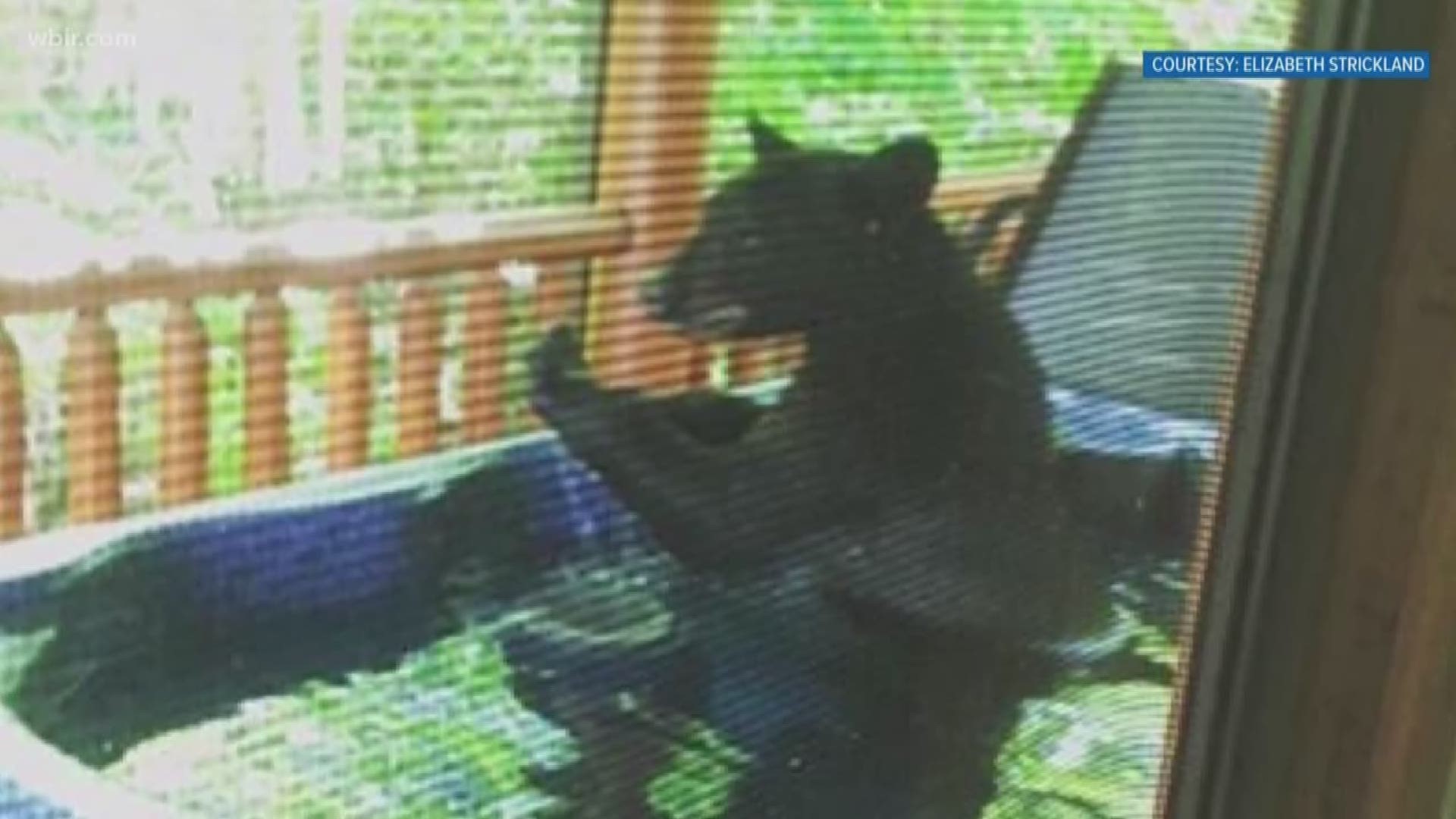GATLINBURG, Tenn. — People aren't the only ones who like a little dip in the hot tub. A family visiting East Tennessee had an unexpected visitor trying to get into the hot tub that was on the porch of their cabin.
Tim Brumlow and his family looked outside last weekend and saw a bear pulling the lid off the hot tub.
He and his family took several videos as the bear roamed the porch, checked out the trash bin, and eventually started to drink from the hot tub.
Before the bear left, it tried to steal the lid from the hot tub and Brumlow can be heard yelling "No!" at the bear to try to scare him off.
The family did the right thing by staying inside while the bear was nearby.
It's not the first time we've heard of a bear trying to get into a hot tub in the Smokies.
Black bear encounters are common and often unavoidable in East Tennessee. However, they are still wild animals and should be treated as such for everyone's safety, especially during this time of the year.
Supervisory wildlife biologist Bill Stiver with the Great Smoky Mountains National Park said fall is a critical time for bears.
"This time of year, bears are focused on feeding on acorns and fattening up for hibernation," he said. "A lot of times, they're just oblivious to the fact that people are nearby."
That's why you may see them get closer to people than during other times of the year. Still, that's all the more reason to stay away.
"You may disturb them off a really important food source during the fall," Stiver said. "It's critical for bears to fatten up and get through hibernation."
If you see a bear or other wild animal such as an elk in the Smokies, you should try to maintain at least half a football field's length of distance.
The Tennessee Wildlife Resources Agency said black bears are usually shy creatures and generally not aggressive unless provoked, but that is not an invitation to approach them if you see one in the park. They are incredibly powerful and fast animals, and can and have attacked people in the past.
Furthermore, you put a bear's life at risk by providing unwanted contact with humans. The saying goes 'A fed bear is a dead bear' because bears are expert scavengers and can become a real nuisance if socialized to humans. As we've seen a few times this year -- they can break into a vehicle with ease and often venture out of their home turf in search of easy food, such as garbage and bird feed.
One of the few things keeping them from persistently encroaching outside the wilderness is a natural fear of humans, so if one loses that fear because they've grown accustomed to a human's presence -- wildlife officers are then forced to make a tough decision between relocating or euthanizing the bear. Often times, it ends with the latter.
If that's not enough to convince you: It's a federal misdemeanor in the park to willingly approach closer than 150 feet of a bear. You could face time behind bars and a hefty fine for doing so.
The Great Smoky Mountains National Park was created for the enjoyment of the people, but it also was created as a protected space for the wildlife that inhabit the area and call the mountains their home. It's important we share that space responsibly.
If you see a bear and wish to observe it or take pictures -- you should do so at ample distance so you don't disturb or socialize them. The GSMNP asks you to use binoculars, a telephoto lens, or spotting scope to view the animals.
Rangers are working areas of the park where they often see or hear about close encounters. Stiver said the park is also adding cones to keep people from stopping on the road and getting too close.
TWRA recommendations:
-Never feed or approach bears-- this includes carefully managing sources of human food or garbage to make sure the bears can't access it or aren't attracted to the area. When camping in bear country, keep all food stored in a vehicle and away from tents.
-If you live in a town near black bear habitats, you should not store food, garbage or other recyclables in areas accessible to bears. You also should avoid feeding birds or other wildlife where bears are active.
-Outdoor pets should only be fed a portion they will completely consume, and keeping grills and smokers cleaned and stored securely will also help deter bears.
-If you do encounter a bear, remove whatever attracted the bear to come into your area. There is almost always a safe escape route when bears enter towns. Crowd control is the initial concern as the behavior of a cornered bear can be unpredictable. Immediately report to the TWRA or local police any sightings of bears within areas of human population centers.
-While black bears are usually tolerant of humans, they should always be treated as wild animals, whether in residential or backcountry areas. Black bears are rarely aggressive towards people and typically go out of their way to avoid contact, however as human development continues and bear numbers increase, occasional interactions will be unavoidable.
-If you see a black bear from a distance, alter your route of travel, return the way you came, or wait until it leaves the area. Make your presence known by yelling and shouting at the bear in an attempt to scare it away.
-If approached by a bear, stand your ground, raise your arms to appear larger, yell and throw rocks or sticks until it leaves the area. Never run from a black bear! This will often trigger its natural instinct to chase.
For more information on how to peacefully co-exist with black bears, visit www.tn.gov.



